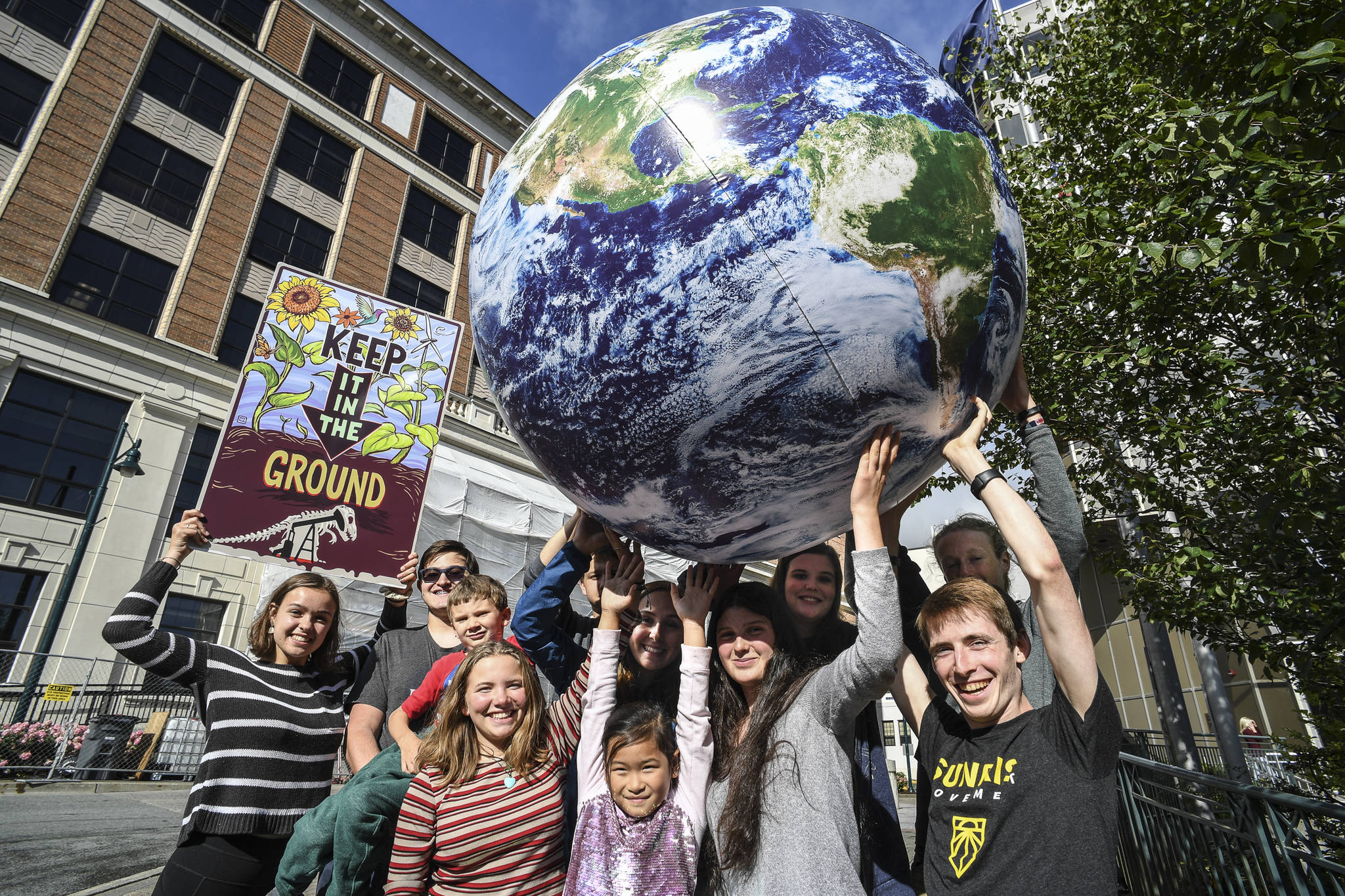Next week, representatives from over 30 nations will be present in Juneau for an annual conference that helps shape how billions of Alaska and international dollars are spent.
The International Forum of Sovereign Wealth Funds — a voluntary global organization of state-owned funds that make investments, such as the Alaska Permanent Fund Corporation, which is hosting this year’s meeting — will hold its annual general meeting in Alaska’s capital city from Sept. 10-13.
Angela Rodell, CEO for Alaska Permanent Fund Corporation, said in a Tuesday phone interview this will be the first forum meeting to be held in the U.S., and it will serve as an opportunity to highlight U.S. priorities and members to have important in-person meetings.
“China, for example, is a very important part of the benchmark that we measure investment success against,” Rodell said. “We believe in investing in China. It’s important to have dialogue with China even though there’s noise around China.”
The United States recently labeled China a currency manipulator and remains embroiled in an ongoing trade war with China.
“Being able to have those one-on-one conversations and dialogue is really important to maintaining a global portfolio that is going to continue to deliver the returns that Alaskans are relying on,” Rodell said.
The meeting will mostly be closed to the public. The meeting’s third day, Sept. 12, will be streamed online and open to invited guests and press.
In light of the sovereign fund meeting taking place in Juneau, local environmental group 350 Juneau will host two public events — a lecture and a rally. Both are meant to underscore the seriousness of climate change and encourage forum members to move their investments away from fossil fuels, organizers said.
[Scientists say Southeast Alaska is especially vulnerable to ocean acidification]
Elaine Schroeder, co-chair for Juneau 350, is hopeful a public demonstration can show support for the idea and offer people an outlet for climate change anxiety.
“Coming to this rally shows the world, the city, the city Assembly, our state government that there is a mass movement behind making rapid and significant changes to our energy use, and that needs to be legislated,” Schroeder said. “It is not about individuals changing light bulbs, it is about policy — major policy.”
Schroeder, and her husband, Bob, who is treasurer for Juneau 350, are hopeful the pro-divesting from fossil fuels message won’t fall on deaf ears since two members of the IFSWF — New Zealand Superannuation Fund and Ireland Strategic Investment Fund — have made moves toward divesting.
Rodell said it’s important to consider what New Zealand is signalling with its decisions.
“They’re really trying to encourage thinking about a future that looks very different from the one we see today,” Rodell said.
Rodell envisioned a different future for Southeast Alaska.
“I look at Juneau’s dependency on fossil fuels, and I wonder what that looks like, if we divest in fossil fuels and everyone followed our leadership on that,” Rodell said. “I look at what would happen to the commercial fishing fleet in this town. Investing in alternative strategies and engaging on alternatives for the future of energy, I think is way more important, and that’s what we’re focused on.”
“We’re not going to give up return in the short-term to make a political statement,” she added.
The Schroeders said their reasons for encouraging funds to stop putting money into fossil fuels are both ethically and financially motivated.
“Fossil fuels have been bum performers over the last decade,” Bob Schroeder said.
Last month, Institute for Energy Economics reported the world’s largest fund BlackRock lost more than $90 billion over a decade by investing in fossil fuels.
“Like most things, you can pick a certain time period to make your argument when it comes to investment,” Rodell said.
[Former state rep talks state of the oceans]
She cited studies that found the California Public Employees’ Retirement System’s decision to stop investing in tobacco was a costly one as evidence divesting from fossil fuels could be a misstep.
“What the trend in the industry is now is to seek out more engagement and really understand what the long-term business plans of a business are rather than withdrawing yourself from an industry in hopes that it goes away because there are too many investors out there who are willing to take your place,” Rodell said. “The potential financial cost is difficult to measure.”
“We think we are being good fiduciaries by truly understanding the governance of these structures,” she added.
A day before the rally, Juneau 350 will host a free climate-change focused talk by award-winning journalist Daniel Grossman. Grossman’s presentation is titled “In the Heat of the Moment: Reports from the Front Lines of the Climate Crisis.”
“He’s going to look at key areas around the world that are experiencing climate change as well as doing something about it, and he will be focusing on northern regions because he’s here,” Elaine Schroeder said.
Know & Go
What: Stand Strong for Climate rally
When: Noon, Tuesday, Sept. 10
Where: Alaska State Capitol, 120 Fourth St.
Know & Go
What: “In the Heat of the Moment: Reports from the Front Lines of the Climate Crisis”
When: 7 p.m., Monday, Sept. 9
Where: The Juneau Arts & Culture Center, 350 Whittier St.
Admission: Free but donations welcome.

